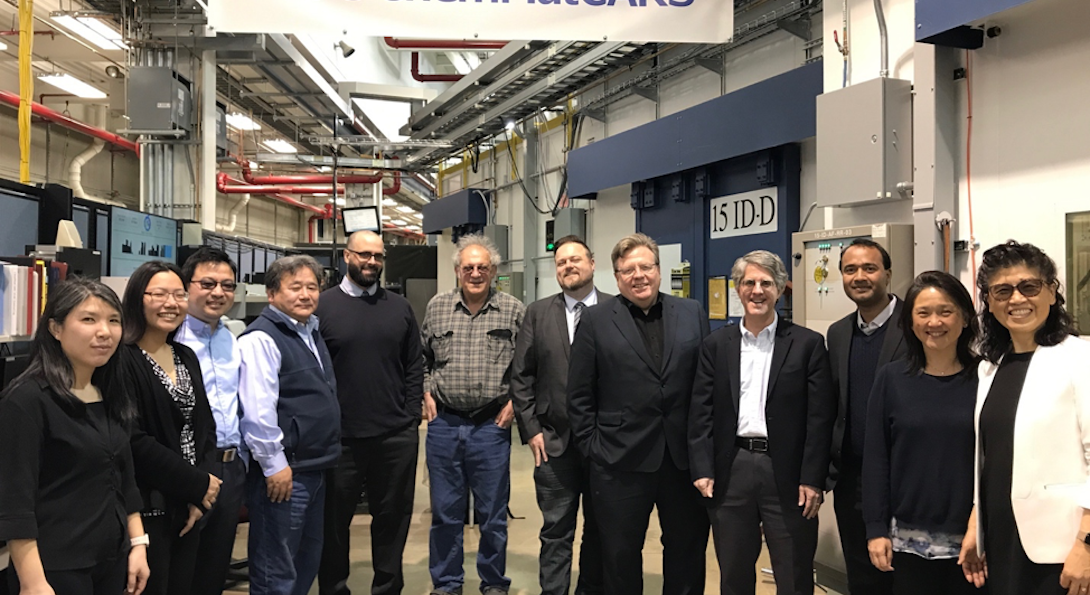Mark Schlossman Receives $14.1 million NSF Grant

Professor Mark Schlossman, along with colleagues from the University of Chicago, has received a five-year grant for $14.1 million to develop new capabilities at the National Science Foundation’s (NSF’s) ChemMatCARS.
ChemMatCARS is a facility attached to Argonne National Laboratory's Advanced Photon Source where scientists use brilliant X-rays to study matter at the atomic and molecular levels. Researchers at the facility investigate the development of new energy sources, new materials for a wide range of industries, new ways to care for the environment, and new understanding of how life works. ChemMatCARS serves as a training ground for national and international researchers at all levels, including STEM-focused students and future scientists.
The study of crystals of small molecules at NSF’s ChemMatCARS facility allows scientists to measure ordering at the atomic level and probe the shape of chemical bonds. New instrumentation supported by this grant will advance the study of structural changes that occur during irreversible chemical and physical reactions and processes, which have proven challenging to characterize on the atomic scale. Research also reveals electron transfer in clusters of bound atoms and molecules, giving scientists an atomic-level understanding of what drives chemical reactions and allowing them to design new compounds with atomic-level precision. The new instrumentation will support studies that replace precious metals with earth abundant metals while preserving the efficiency and selectivity of catalytic chemical reactions.
The study of liquid interfaces at the facility reveals the way molecules and nanoparticles interact within molecularly thin layers at liquid-liquid and liquid-vapor boundaries. New initiatives supported by this grant will address the challenge of characterizing the heterogeneity of liquid surfaces and interfaces on the nanoscale. The study of liquid-solid interfaces will be advanced by new instrumentation, which has the potential to address a wide range of scientific problems in the areas of water purification, protein-membrane interactions to determine the rules of life, and electrolyte-electrode interactions for catalysis and energy applications.
The National Science Foundation Division of Chemistry and Office of Multidisciplinary Activities in the Directorate for Mathematical and Physical Sciences, the Division of Chemical, Bioengineering, Environmental, and Transport Systems in the Directorate for Engineering, and the Divisions of Molecular and Cellular Biosciences and Biological Infrastructure in the Directorate for Biological Sciences awarded the grant (#CHE-1836674).